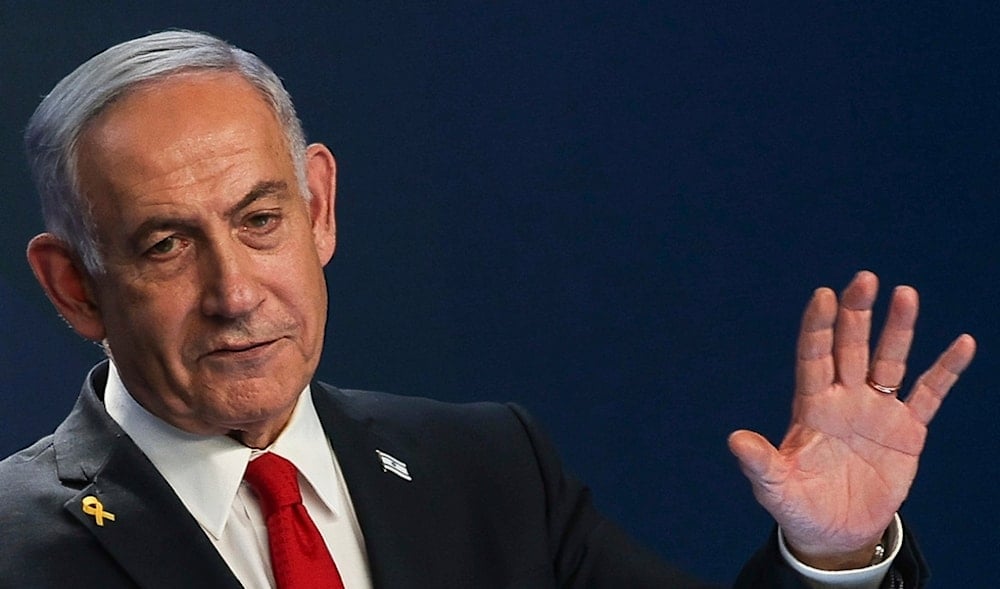Israeli captives' families accuse Netanyahu of 'psychological terror'
Families of Israeli captives accuse Netanyahu of "psychological terrorism" over mixed messages about a potential release deal, sparking outrage and emotional distress.
-

Israeli Prime Minister Benjamin Netanyahu speaks during a press conference in occupied al-Quds, on May 21, 2025. (AP)
Israeli captive Nimrod Cohen's brother has accused Israeli Prime Minister Benjamin Netanyahu of using "psychological terrorism" against the families of captives by hinting at a potential deal for their release, only to renege on his statements.
"It is psychological terrorism in every sense of the word for a prime minister to make a passing comment about my brother’s life," Yotam Cohen stated, as cited by Yedioth Ahronoth.
"It’s despicable and was done in an extremely crude and disgusting manner," he added.
Families say Netanyahu exploiting their pain
The captives' families expressed that they feel manipulated by Netanyahu, who appeared to mock or undermine the possibility of a serious deal to release their relatives, who remain in Gaza.
Hirut Namrodi, mother of captive Tamer Namrodi, told Israeli Army Radio, "When the prime minister speaks on the matter, we believe something real may be happening. It has stirred frustration among all families."
Similarly, Eli Elbagh, father of former captive Liri Elbagh, spoke to Channel 12, relaying, "Families began to feel happy, truly happy, but soon realized it was meaningless chatter," noting the remarks pushed families into a psychologically vulnerable state.
Accusing Netanyahu of irresponsibility, Elbagh said: "He is not just a tweeter. His words carry weight. Every word kills. Families no longer have the strength, 600 days is too long."
Backpedaling after public outcry
Netanyahu's remarks came at the end of a video published on Monday, in which he alluded to updates related to the captives, saying: "I truly hope we can announce something about the hostages, if not today, then tomorrow."
Widespread concern and inquiries from the families of the captives prompted his office to rapidly renege on his statements, clarifying they "should not be interpreted as a sign of an imminent deal."
The mother of an Israeli captive, Einat Angrist, spoke to the Israeli Public Broadcasting Corporation and relayed her understanding of the situation, saying Netanyahu's tone "was not referring to tomorrow, but rather some distant future."
"The soldiers fighting for Israel should know that if they’re captured, not a single minister or Knesset member will fight for them. No one will care," she slammed.
Latest updates on the ceasefire
Currently, both Hamas and the Israeli occupation are reviewing a ceasefire proposal put forward by Palestinian-American mediator Dr. Bishara Bahbah, a senior Palestinian leader confirmed to Al Mayadeen.
Bahbah's proposal, submitted in coordination with and approved by US envoy Steve Witkoff, outlined a comprehensive framework for a 60-day ceasefire, including the release of 10 Israeli captives in two stages and the initiation of direct talks aimed at ending the war on Gaza.
Hamas instead proposed a 70-day ceasefire, in which five live captives and five deceased captives would be released in two stages. Both versions include mechanisms to facilitate humanitarian access and reduce assaults.
Read more: Israeli bombs nearly killed me, blockade left me starving: Ex-captive

 3 Min Read
3 Min Read








